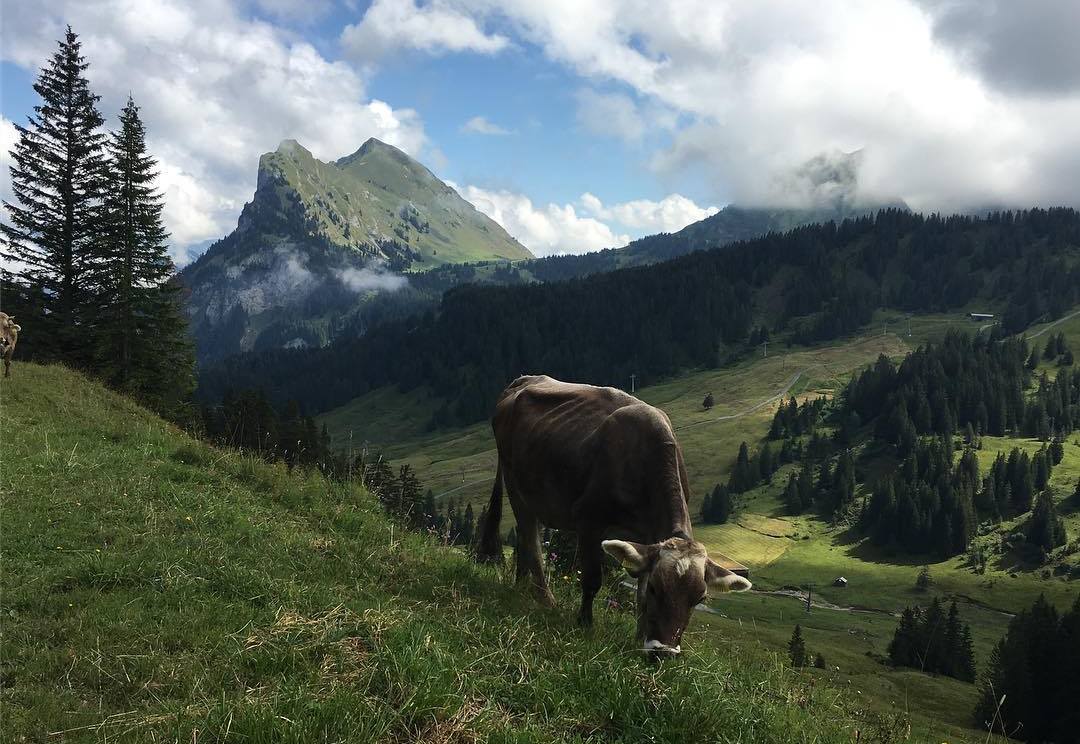Travelling in Europe now has a new extension to the social interactions we are used to. As well as the ill-pronounced phrases of delight at the wine/vistas/frescoes/accommodation of whichever more civilised country we happen to be in, there’s now a new pantomime around Brexit. Eye-rolling, clumsy pronunications of catastrophe, pathetic and timid apologetic looks/words/body language. I don’t know what Leavers do.
We went to Austria to hike and listen to music at the annual Schubertiade (lots of Schubert, natch) high in the Bregenzerwald, part of the Vorarlberg in the glorious Alpine range that rises above Lake Constance towards the Swiss side of the country.Mostly the people we met were baffled by Brexit, but kindly sympathetic. ‘Oh poor you, your country voted to let your children eat grass and giant rats fight them for the weeds’ seemed more or less to be the attitude.
I stopped thinking about it after a while and got to noticing how the Bregenzerwald organises itself so that it seems so entirely comfortable in the EU while simultaneously being one of the most consciously local areas I’ve ever been to. The area – 30,000 people living in the country, in villages, and in very small towns – depends on two commodities, wood and milk.
This is not a rich area. Life is hard and was harder. This was where children as young as six were sent across the border to work on German farms in the late 19th century because their parents couldn’t afford to feed them. But the sustaining thing has been an economy based on trust and even today not wholly based on cash. When the cows go up to the high Alp in May for the summer, they are milked by the farmers there, grazing on communal pasture. The services of the farmer are paid for by a bigger share of the sale of the great wheels of cheese made on the mountain rather than cash. The rules of pasture are based on trust – no one puts the cows out before a certain time, so no cow has an advantage. And so on.
And life is celebrated – animal life too.The cows come down from the Alp, garlanded with rosemary and carnations, around 10 September every year and they end up in the village of Schwarzenberg, greeted almost as conquering heroes.
P0litically, there is more local power in Vorarlberg than any of our small towns and country areas in the UK have now. Mayors can rule on holiday houses (now banned in Bregenzerwald), where new houses can be built (in the centre of villages so that children can go on walking to school from the age of six) and how to encourage apprenticeships for the successful local woodworking and design.
And there are around 332 refugees in the valley. A communal decision, not unanimous but majority. A lot of successes, some failures, but not the subject of hysterical media driven misinformation.
This place doesn’t bleat about being tied up in regulation. But it wouldn’t give up its localism on any account and it is this that gives it the possibility of welcoming a European union. When we reject the EU, as we have, we have been swiping at the wrong target. We gave up up too much of our sovereignty – our real, local sovereignty – too easily and too carelessly. Its our local impotence that’s the problem, not the mythic hate figures of Brussels.














